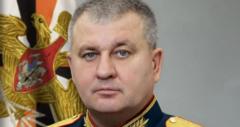The International Criminal Court's warrant against Netanyahu places him among an exclusive group of world leaders with similar charges, raising questions about global accountability and geopolitical ramifications.
International Criminal Court Charges Netanyahu: A Historical Context

International Criminal Court Charges Netanyahu: A Historical Context
A deep dive into the significant implications of recent war crimes charges against Israeli Prime Minister Benjamin Netanyahu.
On November 21, 2024, Israeli Prime Minister Benjamin Netanyahu found himself amidst a select group of global leaders facing serious war crimes allegations, as announced by the International Criminal Court (ICC). The court's warrant, issued against him, aligns Netanyahu with infamous figures such as the former Sudanese president Omar Hassan al-Bashir and Russian President Vladimir Putin.
The ICC has the mandate to prosecute individuals for severe global crimes, and as part of its operation, member states are expected to detain anyone subjected to its warrants. However, compliance has varied across nations, complicating the accountability efforts against powerful leaders.
Netanyahu's charges come in the wake of Putin, who was issued a warrant in March 2023 related to his invasion of Ukraine, specifically citing the forced deportation of children. Despite being a fugitive from the ICC's jurisdiction, Putin has continued to travel, notably visiting non-member states like China and receiving warm receptions in countries that have not cooperated with the court's directives.
Similarly, Omar Hassan al-Bashir was charged with genocide and war crimes in connection with the Darfur conflict in 2009 and 2010. Despite the ICC's demands for his arrest, al-Bashir traveled to various countries without facing detention, showcasing the court's limited enforcement capabilities.
Historical precedents underscore the challenges the ICC faces. Muammar el-Qaddafi, the former Libyan leader, was charged for crimes against humanity in 2011, but he was killed by rebels before he could be tried. The case of William Ruto, formerly deputy president of Kenya, demonstrates the court's fluctuating fortunes; he was charged with crimes against humanity in 2011, but the case against him was eventually dismissed.
Adding to the complexities, Laurent Gbagbo, ex-president of Ivory Coast, was initially indicted in 2011 but was acquitted by the ICC in 2021, indicating that the path to justice in international law can be unpredictable and politically charged.
As Netanyahu prepares to navigate through this international scrutiny, the warrant brings renewed attention to the ICC's role in pursuing justice and accountability, questions about state sovereignty, and concerns regarding the legal repercussions for leaders who defy international norms.



















